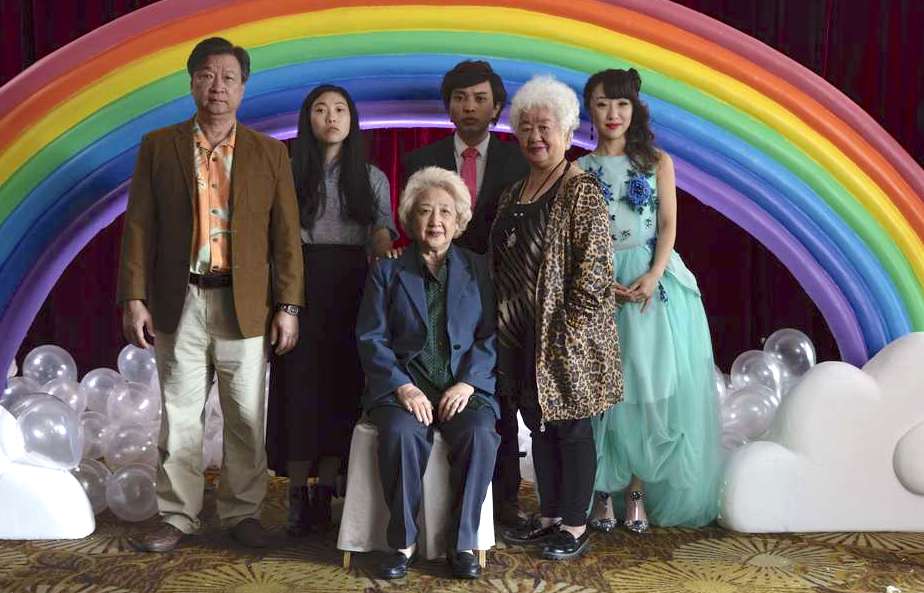By Lynn Lee

Coming out of The Farewell, I jokingly asked my husband, “Any of those family dynamics ring a bell?” It was a double-edged joke, as one of the most challenging differences between us is our night-and-day attitudes towards our respective families, which we attribute to our different backgrounds. He’s white and can trace his American lineage back to the Mayflower, but feels no particular responsibility to his immediate family and rarely sees his extended family; I’m a second-generation Korean American, born to naturalized U.S. citizens who, despite having now been here far longer than they ever lived in Korea, have maintained strong ties to their birth country and culture. As such, they regularly remind me of my obligations to my immediate family, my extended family, and even my husband's family - something that both amuses and bemuses my husband.
No surprise, then, that The Farewell was a must-see for me. True, it’s not “my” story: I’m not Chinese, after all, and as far as I know no one in my family has ever lied to anyone else in the family about their health. But the film’s broader underlying themes – the feeling of being caught between the values of East and West, and not fully belonging to one or the other – spoke to me at a gut level...

And giving the central role of Billi to Awkwafina, who’s about as identifiably “American” as an Asian American star gets, felt inspired, right down to her meager Chinese language skills; as someone who understands Korean at maybe a 12-year-old level but can only speak it (at best) at a 3-year-old’s, I could relate to Billi’s struggles to communicate in a language that’s at once utterly familiar and more than a little foreign.
Yet as I watched The Farewell, the feeling that I had any particular personal claim to it dissipated, replaced by a growing sense that despite its delightful cultural specificity (the graveyard and wedding banquet scenes in particular are sublime), this is truly a movie for everyone – not just Chinese Americans or Asian Americans or even first or second generation immigrants. It should resonate with anyone who has a complicated relationship with their family or who’s ever felt alien or conflicted on returning to their hometown after being away for a long time. In director Lulu Wang’s own words, the movie is:

And how does that affect your dynamic with the people who stayed behind?
In the immigration context, of course, these questions apply just as much to the first generation as to the second, if not more so. Although Billi's attachment to her grandmother (Zhao Shuzhen, whose vibrant charm belies her character's dire diagnosis) is the heart of the film, one of the understated pleasures of The Farewell is its perceptive handling of her relationship with her parents (beautifully played by Tzi Ma and Diana Lin). It's fraught with unspoken tensions—including not just Billi’s life choices (which she’ll only tell them so much about) but theirs, particularly their original decision to move from China to the U.S. when she was only six. Wang explores with remarkable delicacy the emotional impact of that decision on Billi, as well as her father’s unstated but palpable guilt over leaving his mother behind.
That conflict is shared by Billi’s uncle (Jiang Yongbo), who also left China long ago – in his case for Japan – and can only expiate his guilt through a wedding toast so lugubrious it verges on hilarious. Indeed, my only real quibble with the film is that I wanted to know more about that part of Billi’s family – why they moved to Japan, how they negotiated that set of cultural conflicts, how they convinced her cousin (a very deadpan-funny Chen Han) and his girlfriend (Aoi Mizuhara) to go through with their charade of a wedding, and what on earth was going through said girlfriend’s head the entire time? The complete lack of explanation is part of the joke, yet I couldn’t help feeling like an essential part of this tale of displacement and diaspora remained tantalizingly untold.
 Still, I can’t quarrel with Wang for choosing to focus on her own story and to tell it her way. Its very specificity, which she admirably refused to compromise, is ironically what gives the movie such broad appeal. From the details of her own, lived experience of “an actual lie,” we get emotional truth that transcends language, race, and nationality. That’s a welcome gift at any time, but especially in these times.
Still, I can’t quarrel with Wang for choosing to focus on her own story and to tell it her way. Its very specificity, which she admirably refused to compromise, is ironically what gives the movie such broad appeal. From the details of her own, lived experience of “an actual lie,” we get emotional truth that transcends language, race, and nationality. That’s a welcome gift at any time, but especially in these times.
Related articles:
Sundance Review
Our Interview with Lulu Wang